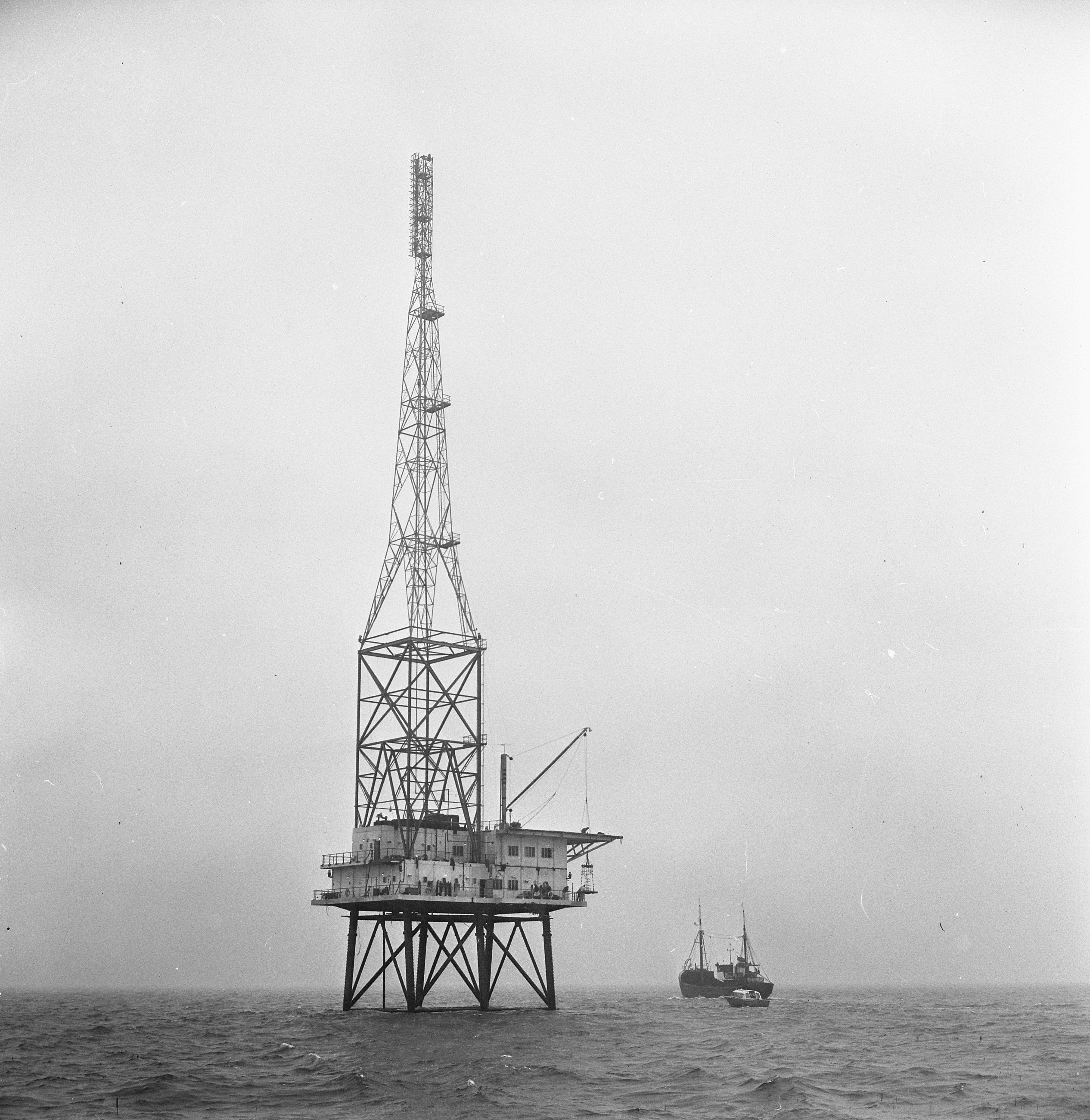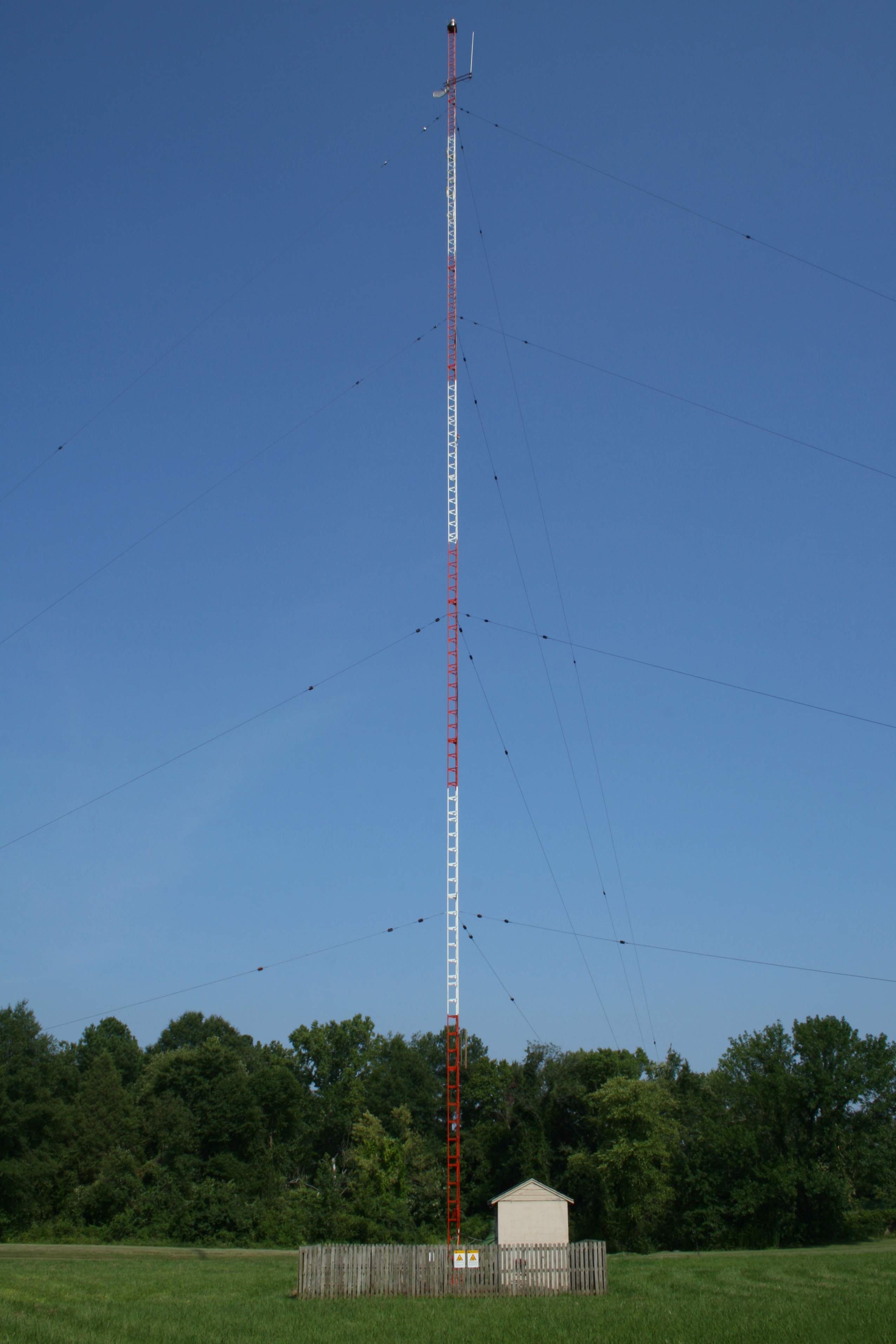|
Radio 390
Radio 390 (1965–1967) was a pirate radio station on Red Sands Fort, (near Whitstable), a former Maunsell Fort on the Red Sands sandbar. Previously the fort had been used by Radio Invicta (c June 1964 – February 1965) and KING Radio (March – September 1965). Neither was well-financed or successful, and KING approached Ted Allbeury, who suggested a format based on women's magazines to appeal to housewives. Radio 390 was named after the station's wavelength, so listeners would know where to tune. The actual wavelength was 388 metres (773 kHz), but 390 was easier to remember. Like its neighbour, Radio City, Radio 390 took advantage of the fort's layout by erecting a 250-foot vertical mast on an inner tower, guyed to three of the outer towers. This, with additional elevation from the height of the towers, gave a stable and efficient antenna, better than ship-based stations, ensuring coverage of southern England with only a 10 kilowatt transmitter. For advertisers, the stati ... [...More Info...] [...Related Items...] OR: [Wikipedia] [Google] [Baidu] |
Pirate Radio
Pirate radio or a pirate radio station is a radio station that broadcasts without a valid license. In some cases, radio stations are considered legal where the signal is transmitted, but illegal where the signals are received—especially when the signals cross a national boundary. In other cases, a broadcast may be considered "pirate" due to the nature of its content, its transmission format (especially a failure to transmit a station identification according to regulations), or the transmit power (wattage) of the station, even if the transmission is not technically illegal (such as an amateur radio transmission). Pirate radio is sometimes called bootleg radio (a term especially associated with two-way radio), clandestine radio (associated with heavily politically motivated operations) or free radio. History Radio "piracy" began with the advent of regulations of the airwaves at the dawn of the age of radio. Initially, radio, or wireless as it was more commonly called at ... [...More Info...] [...Related Items...] OR: [Wikipedia] [Google] [Baidu] |
Reginald Calvert
Pearce Reginald Hartley CalvertNational Probate Calendar, 1966 (1928 – 21 June 1966) was an English artist manager, born in Huddersfield, Yorkshire, England. He was the manager of The Fortunes, Pinkerton's Assorted Colours, Screaming Lord Sutch, and other pop groups. In 1964, after hearing Radio Caroline, he decided to start his own pirate radio station, and made use of an old World War II fort in the Thames Estuary. Originally, the station was called Radio Sutch, and it started broadcasting on 27 May 1964, on 1542kHz. They had a summer of fun, but when Sutch decided to return to performing, Reg Calvert carried on, renamed it Radio City, and put it onto a more professional footing. Calvert was shot and killed by Oliver Smedley, the former owner of a rival offshore station, Radio Atlanta, who was later acquitted of murder on the grounds of self-defence. Life and career Calvert was born into a family of musicians in Huddersfield, and was conscripted into the army in 1946, ... [...More Info...] [...Related Items...] OR: [Wikipedia] [Google] [Baidu] |
Defunct Radio Stations In The United Kingdom
{{Disambiguation ...
Defunct (no longer in use or active) may refer to: * ''Defunct'' (video game), 2014 * Zombie process or defunct process, in Unix-like operating systems See also * * :Former entities * End-of-life product * Obsolescence Obsolescence is the state of being which occurs when an object, service, or practice is no longer maintained or required even though it may still be in good working order. It usually happens when something that is more efficient or less risky r ... [...More Info...] [...Related Items...] OR: [Wikipedia] [Google] [Baidu] |
Radio Stations In Kent
Radio is the technology of signaling and communicating using radio waves. Radio waves are electromagnetic waves of frequency between 30 hertz (Hz) and 300 gigahertz (GHz). They are generated by an electronic device called a transmitter connected to an antenna which radiates the waves, and received by another antenna connected to a radio receiver. Radio is very widely used in modern technology, in radio communication, radar, radio navigation, remote control, remote sensing, and other applications. In radio communication, used in radio and television broadcasting, cell phones, two-way radios, wireless networking, and satellite communication, among numerous other uses, radio waves are used to carry information across space from a transmitter to a receiver, by modulating the radio signal (impressing an information signal on the radio wave by varying some aspect of the wave) in the transmitter. In radar, used to locate and track objects like aircraft, ships, spacecraft an ... [...More Info...] [...Related Items...] OR: [Wikipedia] [Google] [Baidu] |
Pirate Radio Stations In The United Kingdom
Piracy is an act of robbery or criminal violence by ship or boat-borne attackers upon another ship or a coastal area, typically with the goal of stealing cargo and other valuable goods. Those who conduct acts of piracy are called pirates, vessels used for piracy are pirate ships. The earliest documented instances of piracy were in the 14th century BC, when the Sea Peoples, a group of ocean raiders, attacked the ships of the Aegean and Mediterranean civilisations. Narrow channels which funnel shipping into predictable routes have long created opportunities for piracy, as well as for privateering and commerce raiding. Historic examples include the waters of Gibraltar, the Strait of Malacca, Madagascar, the Gulf of Aden, and the English Channel, whose geographic structures facilitated pirate attacks. The term ''piracy'' generally refers to maritime piracy, although the term has been generalized to refer to acts committed on land, in the air, on computer networks, and (in scienc ... [...More Info...] [...Related Items...] OR: [Wikipedia] [Google] [Baidu] |
Offshore Radio
Offshore radio is radio broadcasting from ships or fixed maritime structures. Offshore broadcasters are usually unlicensed but transmissions are legal in international waters. This is in contrast to unlicensed broadcasting on land or within a nation's territorial waters, which is usually unlawful. History The claimed first wireless broadcast of music and speech for the purpose of entertainment was transmitted from a Royal Navy craft, HMS ''Andromeda'', in 1907. The broadcast was organized by a Lieutenant Quentin Crauford using the callsign QFP while the ship was anchored off Chatham in the Thames Estuary, England. However, the majority of offshore broadcasters have been unlicensed stations using seaborne broadcasting as a means to circumvent national broadcasting regulations, for example the practice has been used by broadcasting organizations like the Voice of America as a means of circumventing national broadcasting regulations of other nations. Unlicensed offshore commercial ... [...More Info...] [...Related Items...] OR: [Wikipedia] [Google] [Baidu] |
Pirate Radio In The United Kingdom
Pirate radio in the United Kingdom (UK) has been a popular and enduring radio medium since the 1960s, despite expansions in licensed broadcasting, and the advent of both digital radio and internet radio. Although it peaked throughout the 1960s and again during the 1980s/1990s, it remains in existence today. Having moved from transmitting from ships in the sea to tower blocks across UK towns and cities, in 2009 the UK broadcasting regulator Ofcom estimated more than 150 pirate radio stations were still operating. 1960s Pirate radio in the UK first became widespread in the early 1960s when pop music stations such as Radio Caroline and Radio London started to broadcast on medium wave to the UK from offshore ships or disused sea forts. At the time, these stations were not illegal because they were broadcasting from international waters. The stations were set up by entrepreneurs and music enthusiasts to meet the growing demand for pop and rock music, which was not catered for by ... [...More Info...] [...Related Items...] OR: [Wikipedia] [Google] [Baidu] |
Medium Wave
Medium wave (MW) is the part of the medium frequency (MF) radio band used mainly for AM radio broadcasting. The spectrum provides about 120 channels with more limited sound quality than FM stations on the FM broadcast band. During the daytime, reception is usually limited to more local stations, though this is dependent on the signal conditions and quality of radio receiver used. Improved signal propagation at night allows the reception of much longer distance signals (within a range of about 2,000 km or 1,200 miles). This can cause increased interference because on most channels multiple transmitters operate simultaneously worldwide. In addition, amplitude modulation (AM) is often more prone to interference by various electronic devices, especially power supplies and computers. Strong transmitters cover larger areas than on the FM broadcast band but require more energy and longer antennas. Digital modes are possible but have not reached momentum yet. MW was the main radio ban ... [...More Info...] [...Related Items...] OR: [Wikipedia] [Google] [Baidu] |
Lulu (company)
Lulu Press, Inc., doing business under trade name Lulu, is an online print-on-demand, self-publishing, and distribution platform. By 2014, it had issued approximately two million titles. The company's founder is Red Hat co-founder Bob Young. Lulu's current CEO is Kathy Hensgen. The company's headquarters are in Morrisville, North Carolina. Products Lulu produces books in print and digital form. Printed books are available in several formats and sizes including paperback, coil bound, and hardcover. Books can be printed in black and white or in full color. In 2009, Lulu began publishing and distributing ebooks. Lulu also prints and publishes calendars and photo books. In 2017, Lulu introduced an Open Access print-on-demand service. itation needed Process Authors upload their book as a PDF file to Lulu using their book creation process. Material is submitted in digital form for publication. Authors can then buy copies of their own book and/or make it available for purchase in t ... [...More Info...] [...Related Items...] OR: [Wikipedia] [Google] [Baidu] |
Routledge
Routledge () is a British multinational publisher. It was founded in 1836 by George Routledge, and specialises in providing academic books, journals and online resources in the fields of the humanities, behavioural science, education, law, and social science. The company publishes approximately 1,800 journals and 5,000 new books each year and their backlist encompasses over 70,000 titles. Routledge is claimed to be the largest global academic publisher within humanities and social sciences. In 1998, Routledge became a subdivision and imprint of its former rival, Taylor & Francis Group (T&F), as a result of a £90-million acquisition deal from Cinven, a venture capital group which had purchased it two years previously for £25 million. Following the merger of Informa and T&F in 2004, Routledge became a publishing unit and major imprint within the Informa "academic publishing" division. Routledge is headquartered in the main T&F office in Milton Park, Abingdon, Oxfordshire and ... [...More Info...] [...Related Items...] OR: [Wikipedia] [Google] [Baidu] |
Daily Mirror
The ''Daily Mirror'' is a British national daily tabloid. Founded in 1903, it is owned by parent company Reach plc. From 1985 to 1987, and from 1997 to 2002, the title on its masthead was simply ''The Mirror''. It had an average daily print circulation of 716,923 in December 2016, dropping to 587,803 the following year. Its Sunday sister paper is the '' Sunday Mirror''. Unlike other major British tabloids such as '' The Sun'' and the '' Daily Mail'', the ''Mirror'' has no separate Scottish edition; this function is performed by the '' Daily Record'' and the '' Sunday Mail'', which incorporate certain stories from the ''Mirror'' that are of Scottish significance. Originally pitched to the middle-class reader, it was converted into a working-class newspaper after 1934, in order to reach a larger audience. It was founded by Alfred Harmsworth, who sold it to his brother Harold Harmsworth (from 1914 Lord Rothermere) in 1913. In 1963 a restructuring of the media interests of the Ha ... [...More Info...] [...Related Items...] OR: [Wikipedia] [Google] [Baidu] |





